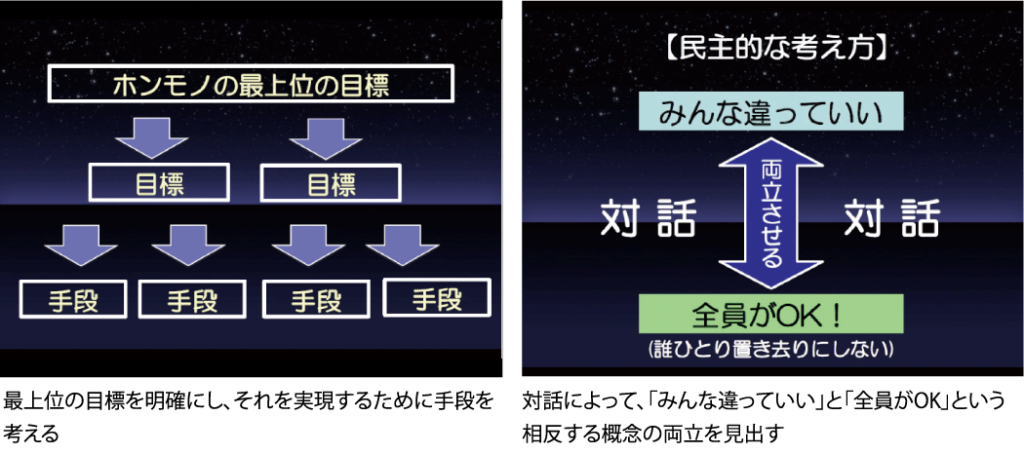- Information for Teachers
-VISIONARY SCHOOL- Challengers who create the future
2020.12.02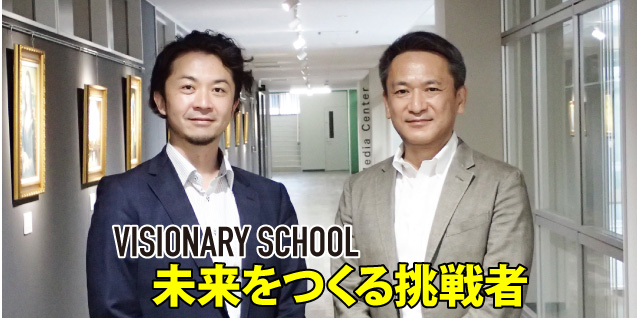
Thinking about the form of "leaving no one behind" through dialogue.
In a rapidly changing society, new educational topics such as active learning and STEAM education are entering schools. Furthermore, the impact of COVID-19 this year has accelerated the creation of an "anytime, anywhere learning environment" through online. In such an environment, what will be the significance of "schools"? Mr. Yuichi Kudo, Principal of Yokohama Soei Junior and Senior High School, and Mr. Jo Inoue, Representative Director and Vice President CTO of Liverness Corporation, discussed.
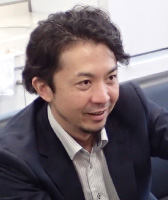 Inoue, Jyo
Inoue, Jyo
Representative Director, Vice President CTO, Liverness, Inc.
D., Pharmacist, Tokyo University of Pharmacy and Life Sciences. He is a founding member of LIVERNESS. After completing his doctoral studies, he worked as an assistant professor and lecturer at the Faculty of Science, Kitasato University, and an assistant professor at the Graduate School of Medicine, Kyoto University, before being appointed and concurrently serving as a specially-appointed associate professor at the Institute for Advanced Biosciences, Keio University in 2015, and as a professor of advanced pharmacy at the Faculty of Pharmaceutical Sciences, Kumamoto University and a visiting professor at the Faculty of Pharmaceutical Sciences, Keio University in 2018. While conducting research and development, he is a researcher involved in launching joint research projects with universities and research institutions and supporting the establishment of research institutes.
Concurrently serves as Director of Humanome Research Institute, Inc.; Professor of Advanced Pharmacy, Faculty of Pharmaceutical Sciences, Kumamoto University; Visiting Professor, Faculty of Pharmaceutical Sciences, Keio University; Specially Appointed Associate Professor, Institute for Advanced Biosciences, Keio University; Member of the "Future Classroom" and EdTech Study Group, Ministry of Economy, Trade and Industry; Technical Member, NEDO; Technical Advisor, Metagen, Inc. Technical Advisor, etc.
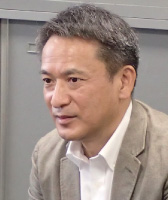 Yuichi Kudo
Yuichi Kudo
Director, Horii Gakuen Educational Corporation / Principal, Yokohama Soei Junior & Senior High School
Born in Tsuruoka City, Yamagata Prefecture in 1960. After five years as a mathematics teacher at a public middle school in Yamagata Prefecture, he was transferred to a junior high school in Taito Ward, Tokyo. He then served on the boards of education of Tokyo Metropolitan Government and Meguro Ward, and as head of the Education Guidance Section of Shinjuku Ward Board of Education before assuming his current position as principal of Kojimachi Junior High School in Tokyo's Chiyoda Ward in April 2014. He implemented bold educational reforms that attracted much attention, and from April 2020 he became principal of the Horii Gakuen Yokohama Souei Junior and Senior High School, a school corporation. He is also currently a member of the Education Revitalization Executive Council of the Cabinet Secretariat and a member of the Ministry of Economy, Trade, and Industry's "EdTech" committee, among other public positions. He is the author of the best-selling book, "I quit 'the norm' at school. -Students and Teachers Change! (Jiji Press) and many others.
What is the role of schools?
Inoue. During your previous position at Kojimachi Junior High School, you abolished many things that had been taken for granted in schools until then, such as "homework," "mid-term and final exams," "class teachers," "class competitions at sports festivals," and "guidance on clothing and hair. I think there is an idea about the state of schools behind this. In fact, what was Mr. Kudo thinking when he was reviewing these matters?
Kudo I always had a clear "top goal" and thought about what I needed to do to achieve it. At the same time, I was conscious of "not making the means into an end. When means become ends, they can undermine the realization of the top goal. However, at the time of my assignment, what should have been a means to an end, such as "guidance on clothing and hair," was being carried out in a manner that made it an end. Therefore, we selected only those initiatives that would lead to the top-level goal and decided to discontinue various other initiatives.
Inoue. In our company, "corporate philosophy" and "vision" are the most important. At LIVERNESS, we always go back to this to clarify what we need to do. It is truly our "topmost goal. Is it the educational philosophy unique to each school, or is it the goal of the existence of the "school" as a higher level concept? In this issue, we would like to discuss the very question, "What is a school?" We would like to discuss about "What is a school?
Kudo We believe that there are two primary goals of "school. The first is "to be a period of preparation for children to live better in society," and the second is "to create a better society.
The accumulation of student self-determination fosters autonomy.
Inoue. Certainly what students learn in school should be closely related to how they live in society. What specific experiences do you think are important for students to have?
Kudo What we consider most important is the experience of students making their own self-determinations. This allows students to develop autonomy. To this end, I ask, "What did you do?" What do you want to do? I place great importance on encouraging autonomy. For example, suppose a fight breaks out between children. When I ask the student, "What happened? I will say, "I got into a fight. I can't forgive the other person. However, by asking several "What do you want to do? will help them realize and weigh the options of "staying unforgiving" and "making up". Next, "What do you want support for?" If you ask, you may be able to create a space for students to talk to each other. In other words, it is important to create opportunities for students to make their own self-decisions while talking to them appropriately.
Inoue. When you go out into the world and work and live with people from very different backgrounds, communication problems are bound to arise. So your own relationship problems in school can be a learning opportunity.
Kudo Yes, it does. Furthermore, the goal of fostering autonomy changes not only relationships, but also the way classes are taught and the way students perceive the way they learn. It should be okay for some students to study for cram school or their weak subjects during math time, for some to study while chatting, and for others to create a place to concentrate and study alone.
Inoue. By respecting the students' own self-determination, they will be able to decide what and how to learn in a learner-centered manner.
Kudo Yes, that's right. We need to shift from a "one-size-fits-all" education that tries to give all children the opportunity to experience the variety of learning that will be necessary in the world in the future, to creating an environment that develops the potential of each individual.
Dialogue on the theme of "leaving no one behind."
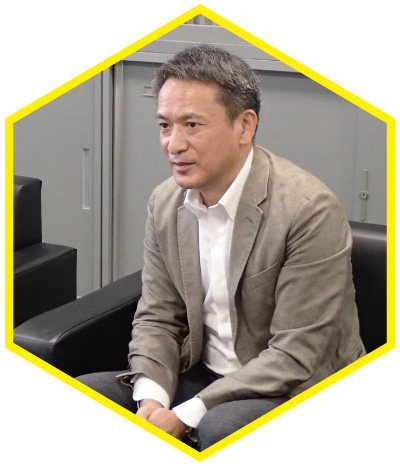 Inoue. I believe another top goal of the school is to create a better society. Could you elaborate on that?
Inoue. I believe another top goal of the school is to create a better society. Could you elaborate on that?
Kudo The word "better" is paraphrased in our schools as "leave no one behind." However, this is not an easy thing to do. This is because trying to respect each individual creates conflicts of interest. However, we must overcome this conflict and find a balance between the conflicting concepts of "everyone is different" and "everyone is OK. We believe that is what we should learn at school.
Inoue. I do believe that individual standing and dialogue will be very important when we go out into the world. There is a limit to what one person can do alone. At that time, I believe that by repeatedly engaging in dialogue with others and becoming a team, we can accomplish great things that cannot be done alone.
Kudo Yes, we do. That is why we ask students to dialogue with each other and think about the content. For the gymnastics festival, we only set the goal as "something that all students can enjoy," and after that, it is up to the students. Some students may dislike group activities or exercise, while others may be good at sports or like to show off. We consider the various positions of the students and create a sports festival that can be enjoyed by all students. The goal of the cultural festival is to "entertain the audience with all the students. We have to entertain local residents, elementary school students, families, teachers, and everyone else, so we have to deal with a more diverse audience than at the athletic festival.
Inoue. Even when a project is carried out in society, if even one person or company involved loses money, it will not be sustainable and will not be good for everyone.
Kudo You are absolutely right. In fact, in the past, wars and science and technology have been used in the wrong way as a result of fighting over resources and thinking only of the development of one's own industry. In order to prevent such things from happening in the future, we should learn the process of reaching an agreement through dialogue at school under the theme of "leaving no one behind," which will lead to the creation of a society that does not make anyone unhappy.
Start by "not blaming others."
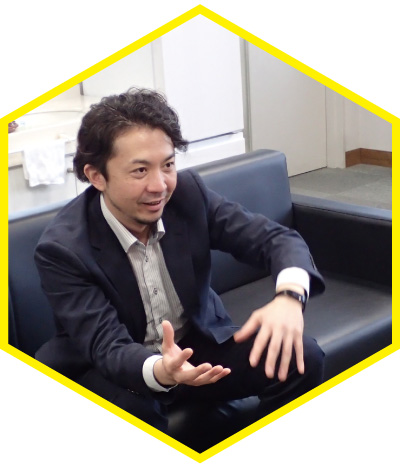 Inoue. I now know more about Mr. Kudo's ideas about the school's raison d'etre. Thank you very much. Student autonomy and the process of repeated dialogue and agreement are very important. What do you think are the issues that need to be resolved in order to expand these ideas in the future?
Inoue. I now know more about Mr. Kudo's ideas about the school's raison d'etre. Thank you very much. Student autonomy and the process of repeated dialogue and agreement are very important. What do you think are the issues that need to be resolved in order to expand these ideas in the future?
Kudo In today's school education, "academic achievement" has become the top goal and has become over-serviced. For example, there is a lot of homework and remedial work. Teachers, whose workloads are increasing, are becoming more and more exhausted. Students become accustomed to completing the tasks they are given, and opportunities to develop autonomy and dialogue are lost. As a result, they take for granted what they are given, and they start to "blame others" when something goes wrong.
Inoue. A situation where everyone is having a hard time with service on top of service. That is why it is important to think and dialogue once again about the school's top goal. Eliminate activities that interfere with it and simplify what needs to be done. After setting the top-level goal, what do you think is important to get others involved?
Kudo It's about "making everyone a party." When you clarify responsibilities or give people some authority, they will see it as their own business and will think and act accordingly. Of course, it is a prerequisite that there is agreement on the top-level goal. Without that, people will just impose their own opinions and values on each other. In the past, we have invited parents from the general public to participate in school improvement meetings. We expect that there will be criticism of the school, but this is not the case at all. By agreeing on the top goals, and by making the parents aware that they too are involved in school improvement, a variety of constructive ideas have been raised.
Inoue. By having a sense of being a party to the project, he said, it became a place where they could think together to achieve their top goals, transcending the boundaries of their existing titles and positions.
Kudo Yes, and I think it is important to implement these from within the staff room. In the staff room, it is very often the case that new ideas are often opposed and the methods of previous years are adopted. If we cannot have a top-level goal and have a dialogue in the staff room and come to a consensus, we cannot pass it on to the students. I say to my students, "We have to create a better society through dialogue. If we lose the battle to create a better society through dialogue, the human race will perish. Global problems and everyday problems all stem from our dialogue. None of us has an enemy. Instead of blaming someone else, I believe it is important to dialogue and take action toward our topmost goal.
Inoue. So dialogue and agreement in the staff room is the first step. Instead of over-servicing, it is a form of asking teachers once again, "What is a school?" and then the teachers act as a team. I could feel the driving force behind Mr. Kudo's actions and decisions. Thank you very much for your time today.
*Reprinted from "Education Support vol. 48

